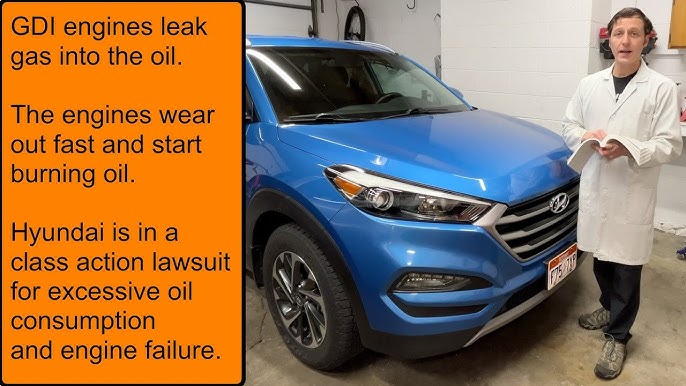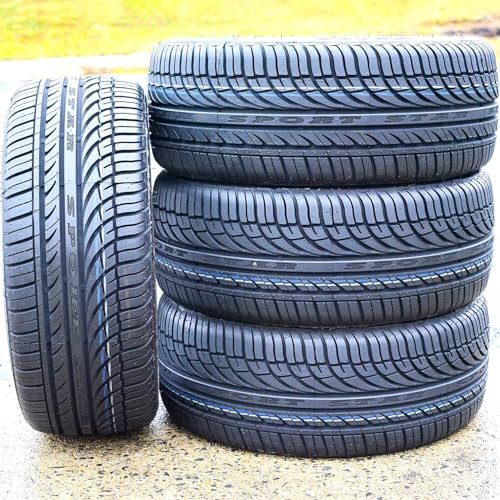Your Hyundai Sonata could be burning oil due to worn piston rings, valve seals, or a leaking gasket, causing oil to enter the combustion chamber, resulting in oil burning. This can lead to blue smoke from the exhaust and decreased oil levels.
Addressing these issues through professional inspection and repairs is crucial for maintaining your vehicle’s performance and longevity. A Hyundai Sonata burning oil can be a concerning issue for car owners. If not addressed promptly, it can lead to engine damage and increased repair costs.
Understanding the potential causes and taking the necessary steps to resolve the issue is essential. We will explore the reasons behind oil burning in a Hyundai Sonata, its implications, and the actions you can take to rectify the situation. By gaining insights into this common automotive issue, you will be better equipped to maintain your vehicle’s optimal condition and performance.

Credit: m.youtube.com
Common Causes For Hyundai Sonata Burning Oil
When a Hyundai Sonata starts burning oil, it could be due to defective piston rings, which can allow oil to leak into the combustion chamber and get burned along with the fuel. Worn valve seals could also be a culprit, as they can allow oil to bypass and enter the combustion chamber. Additionally, leaking gaskets could lead to oil leaks and subsequently cause oil burning. It’s important to address these issues promptly to prevent further engine damage and excessive oil consumption. Regular inspections and maintenance can help identify and resolve these problems before they escalate.
Symptoms Of Burning Oil In Hyundai Sonata
There are several symptoms that indicate your Hyundai Sonata may be burning oil. One of the primary signs is the presence of blue smoke coming from the exhaust. This could indicate that oil is entering the combustion chamber and getting burned along with the fuel.
Another common symptom is a decrease in oil levels between oil changes. If you notice that you are constantly having to top up your oil, it could be a sign that your car is burning oil.
Additionally, an engine misfire can also be an indication of oil burning in the cylinders. If you experience rough idling or a loss of power, it could be due to oil getting into the engine’s combustion chamber.
Troubleshooting The Hyundai Sonata Oil Consumption
If you have been experiencing excessive oil consumption in your Hyundai Sonata, it is important to troubleshoot the issue to address the problem effectively. Start by checking the oil consumption rate of the vehicle. Keep track of the amount of oil used over a specific distance to determine if the consumption is excessive. Additionally, inspect the spark plugs for any signs of oil fouling which could indicate internal engine issues. Reviewing the maintenance history of the vehicle may also provide insight into any potential causes of the oil burning problem. By addressing these key areas, you can work towards resolving the oil consumption issue with your Hyundai Sonata.
Diy Solutions For Hyundai Sonata Burning Oil
If you have a Hyundai Sonata and are experiencing burning oil, there are DIY solutions that can help address the issue. One of the common causes of burning oil in a Hyundai Sonata is a faulty PCV valve. By regularly replacing the PCV valve, you can help prevent oil burning. Another solution is to upgrade to a thicker engine oil to reduce oil consumption and burning. Additionally, addressing engine overheating can help prevent oil from burning in the Sonata. By taking these DIY steps, you can potentially reduce or eliminate the issue of oil burning in your Hyundai Sonata.
Professional Solutions For Hyundai Sonata Oil Consumption
Engine Compression Test: If your Hyundai Sonata is burning oil, one of the first steps to identify the issue is to conduct an engine compression test. This test helps to determine if there are any irregularities in cylinder compression that may be causing oil consumption.
Valve Seal Replacement: Faulty or worn valve seals can often be the culprit behind oil burning in the Sonata. Replacing these seals can help prevent oil from leaking into the combustion chamber, thereby reducing oil consumption and maintaining optimal engine performance.
Piston Ring Replacement: Worn or damaged piston rings can lead to oil burning in the Sonata. By replacing these rings, you can restore proper cylinder sealing and prevent oil from entering the combustion chamber, ensuring efficient engine operation.
Frequently Asked Questions On Why Is My Hyundai Sonata Burning Oil
Why Is My Hyundai Sonata Burning Oil?
Burning oil in your Hyundai Sonata could be due to worn piston rings, valve seals, or a faulty PCV valve. It could also indicate a leaking gasket or a clogged oil passage. Regular maintenance and addressing these issues promptly can help resolve the problem and prevent further damage.
How Do I Know If My Hyundai Sonata Is Burning Oil?
Look for signs such as blue smoke from the exhaust, increased oil consumption, or a burning smell. You may also notice a decrease in engine performance or an illuminated oil pressure warning light on the dashboard. If you experience any of these symptoms, it’s essential to have your vehicle inspected by a professional mechanic.
What Are The Potential Consequences Of Burning Oil In My Hyundai Sonata?
Ignoring a burning oil issue can lead to serious engine damage, including excessive wear, reduced fuel efficiency, and potential catalytic converter failure. It’s crucial to address the root cause promptly to prevent long-term issues and ensure the longevity of your vehicle’s engine.
Can I Fix The Burning Oil Issue In My Hyundai Sonata Myself?
While some DIY enthusiasts may attempt to address minor oil burning issues, it’s generally recommended to seek professional assistance. A qualified mechanic can accurately diagnose the problem and perform necessary repairs, ensuring the issue is effectively resolved and preventing further complications.
Conclusion
Discovering your Hyundai Sonata burning oil can be concerning, but understanding the potential causes and solutions is essential. By addressing maintenance issues promptly and following the manufacturer’s recommendations, you can mitigate the risk of oil burning. Don’t hesitate to consult a professional mechanic for further diagnosis and resolution.
Stay informed and proactive.







